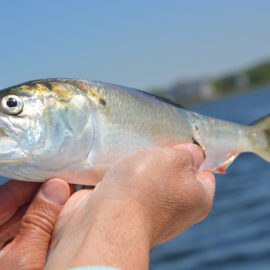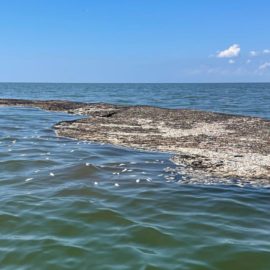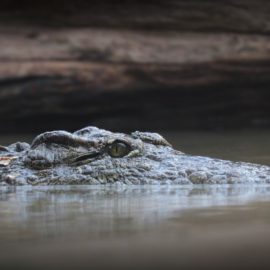
Wildlife defines the state but too many species are on the brink of extinction.
From white-tailed deer to whooping cranes, wildlife are a big part of what defines Louisiana. Sadly, the Louisiana Department of Wildlife and Fisheries (LDWF) estimates that 362 species in the state are already at risk. It’s part of a larger national trend where more than one-third of America’s wildlife are edging toward extinction. Right now, Congress has a once-in-a-generation opportunity to help protect our national wildlife heritage. A bipartisan bill called the Recovering America’s Wildlife Act would dedicate $1.4 billion to proactive, collaborative efforts to help species at risk. It is a solution that matches the magnitude of the crisis — and it has real momentum. The U.S. House passed the bill on a bipartisan basis in June. The Senate version has more than 42 co-sponsors, including 16 Republicans, and is expected to be voted on when the Senate reconvenes after the midterm elections. This bill would give LDWF $15.4 million a year to help the 362 at-risk species in the state. Despite Republican senators from Mississippi, Alabama and Arkansas supporting the bill as co-sponsors, our own U.S. Sens. Bill Cassidy and John Kennedy have yet to show the same support.
nola.com
This is a good deal for Louisiana as the state tries to do good but funding is limited.
This bill makes sense for Louisiana: The LDWF has decades of experience using the fees and taxes paid by hunters and anglers to ensure that Sportsman’s Paradise has bountiful fish and game. The department has the expertise and the mandate to help non-game wildlife, but lacks the funding. The plight of Louisiana’s freshwater turtles illustrates the depth of the crisis: More than half face an elevated risk of extinction. For example, the once-ubiquitous alligator snapping turtle has never recovered from overharvesting decades ago. These iconic, enormous turtles are projected to decline 95% over the next 50 years due to a combination of challenges, including loss of habitat, water quality issues and poaching. The alligator snapping turtle’s slow rate of reproduction is another obstacle. Female snapping turtles are slow to mature and they lay just one clutch of eggs every two years. And these ancient turtles’ nests face modern challenges; invasive species from fire ants to feral hogs eat their eggs while their riverside nests are at risk from increasingly frequent floods. Raising and releasing juvenile alligator snappers — like LDWF does so well with sport fish — shows promise, but lack of funding has prevented this from being studied or implemented at scale.
Steady funding is always the best as then they know how much they will receive yearly and can budget accordingly.
Steady, predictable funding for fish and game species has long ensured that Louisiana remains Sportsman’s Paradise. But when wildlife like turtles are in trouble, the same kinds of resources are not available. As a result, alligator snappers will likely soon join the 25 other Louisiana species listed under the Endangered Species Act. RAWA would fund proactive, collaborative conservation efforts so LDWF can work with landowners, universities and other partners when species like snappers are starting to struggle — rather than waiting until they are on the brink of extinction, like we do now. The $15.4 million annually for Louisiana would unleash a new era of conservation for wildlife like monarch butterflies, roseate spoonbills and pocket gophers — and would also benefit game species like pintail and canvasback ducks. The commonsense, cost-effective approach of RAWA would benefit Louisiana’s economy. Outdoor recreation alone generates more than $5.5 billion annually. Inaction is the ally of extinction. We urge Sens. Cassidy and Kennedy to take this opportunity to help save our wildlife by joining their colleagues as co-sponsors and helping pass the bipartisan Recovering America’s Wildlife Act.
Help pass it and then crow.



